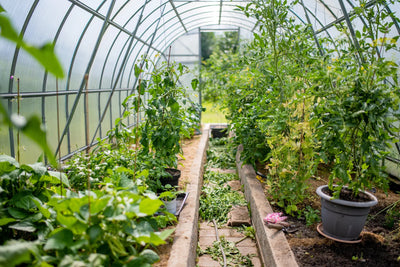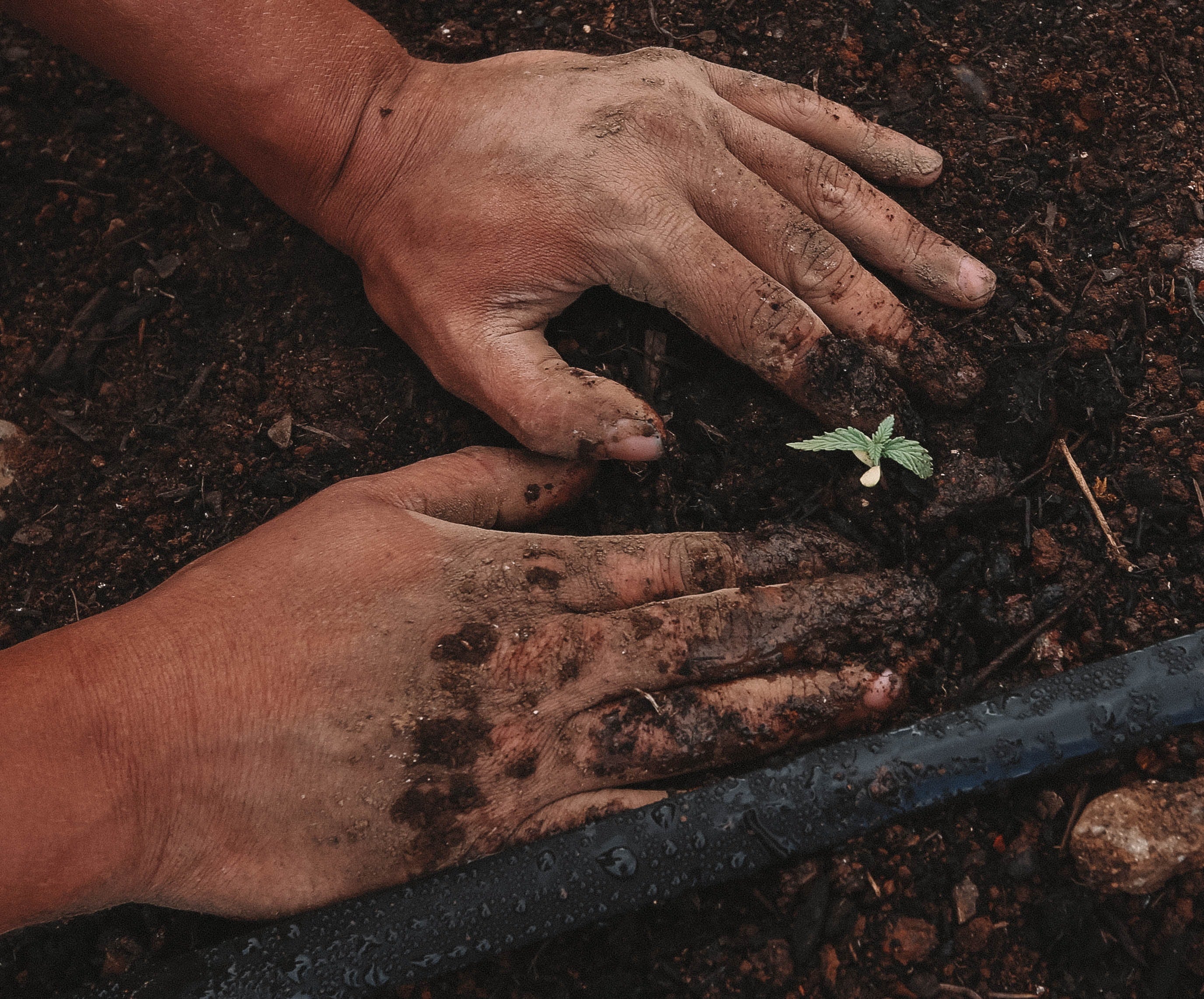In our bustling world, where stress and anxiety often cling to us like stubborn shadows, it's crucial to discover moments of solace that can soothe our mental well-being. Gardening, often seen as a comforting pastime, provides a haven of peace and a treasure trove of mental health perks. Beyond the obvious physical advantages, the simple act of caring for plants can work wonders for our mental state.
We're exploring the incredible mental health benefits that gardening offers and why it's a delightful pursuit for anyone to undertake. Here at Seed Armory, we believe that being in harmony with nature not only enhances physical health but also significantly improves mental well-being. One way to achieve this is by applying the principles of "permaculture," which we will discuss in this blog post.
Here is a list of the many mental health benefits gained by starting your own survival garden and how it can help you and your community in today's fast-paced world:
- Mood Enhancement: The natural beauty of a garden, the vibrant colors, and the soothing scents can stimulate the release of endorphins, which are known as "feel-good" hormones. This can elevate your mood and help combat symptoms of depression and anxiety.
- Mindfulness and Presence: Gardening encourages mindfulness, a practice of being fully present in the moment. As you nurture your plants, you become attuned to the subtle changes in the environment, fostering a sense of mindfulness that can translate to improved mental clarity and focus.
- Stress Reduction: Gardening provides an opportunity to connect with nature and escape the demands of modern life. The physical act of digging, planting, and weeding can be a form of meditation, promoting relaxation and reducing stress. Studies have shown that spending time in green spaces can lower cortisol levels, the hormone associated with stress. WebMD has a great article that's in-depth and more statistical on how gardening affects mental health.
- Sense of Accomplishment: Watching seeds sprout, plants grow, and flowers bloom can provide a deep sense of accomplishment. This tangible evidence of your efforts can boost self-esteem and give you a sense of purpose.

- Connection and Social Interaction: Gardening can also be a social activity. Engaging with fellow gardeners and sharing experiences can help build a sense of community and reduce feelings of isolation.
- Physical Exercise: Gardening is a moderate physical activity that can improve fitness levels and release endorphins, contributing to an overall sense of well-being.
- Learning and Growth: Gardening is a continuous learning process. As you experiment with different plants and techniques, you can gain new skills, which can be mentally stimulating and boost confidence.
Permaculture, a term derived from "permanent agriculture" or "permanent culture," is a sustainable design philosophy rooted in the principles of working with, rather than against, nature. It offers a holistic approach to land use and living that focuses on creating harmonious, self-sustaining systems. While permaculture is often associated with farming and gardening, its principles can be applied to various aspects of life to promote sustainability and ecological harmony.
Incorporating gardening into your daily routine doesn't require a green thumb or vast outdoor space. Even a small balcony or windowsill can become a garden oasis. Whether you're growing herbs, flowers, or vegetables, the act of nurturing living things can have a profound impact on your mental health.
- Observation: The foundation of permaculture is keen observation. By taking the time to understand the natural patterns and processes of your environment, you can make informed decisions about how to interact with it. This principle encourages us to slow down, connect with nature, and become more attuned to the world around us, fostering a deeper appreciation for the environment.
- Diversity: Nature thrives on diversity, and permaculture embraces this concept. In gardening, for example, planting a variety of crops can reduce the risk of pests and disease while promoting a balanced ecosystem. Beyond agriculture, embracing diversity in our communities and lifestyles can enhance resilience and creativity.
- Use of Natural Resources: Permaculture emphasizes the responsible use of resources. It encourages recycling, composting, and reducing waste. Applying this principle to daily life can help minimize our ecological footprint and reduce environmental degradation.

- Integration: In permaculture, different elements in a system are designed to work together synergistically. This can be applied to our homes and communities by creating integrated, self-sustaining systems that minimize waste and energy consumption.
- Sustainable Design: Permaculture advocates for designs that are both ecologically sound and economically viable. This principle encourages us to think long-term, considering the impact of our actions on future generations.
- Ethical Decision-Making: Permaculture is guided by three core ethics: Earth Care, People Care, and Fair Share. These principles remind us to prioritize environmental stewardship, human well-being, and equitable resource distribution.
We've embarked on a journey to explore the profound connection between gardening, permaculture, and our mental well-being. In our fast-paced world, where stress and anxiety often loom large, the simple act of tending to plants can serve as a balm for the soul. The mental health benefits of gardening, from mood enhancement to stress reduction and a sense of accomplishment, are undeniable.
Furthermore, permaculture, a philosophy rooted in ecological harmony and sustainability, offers valuable insights into how we can extend these benefits beyond our gardens and into our daily lives. Its principles of observation, diversity, responsible resource use, integration, sustainable design, and ethical decision-making provide a roadmap for living in greater harmony with nature.











